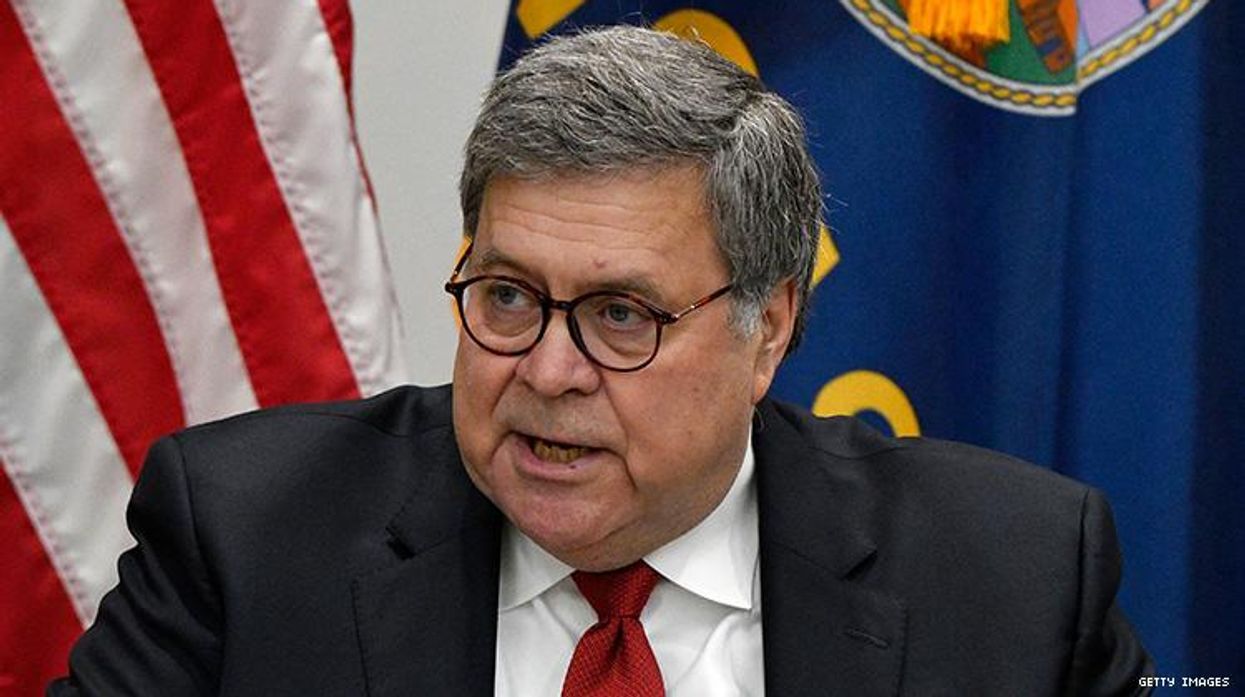The U.S. Department of Justice is weighing in on the side of a Kentucky photographer who doesn't want to provide services to same-sex weddings, continuing its history under the Trump administration of supporting discrimination.
Chelsey Nelson, who operates a photography business in Louisville, filed a preemptive lawsuit in federal court in November against the Louisville-Jefferson County metro government, challenging its LGBTQ-inclusive Fairness Ordinance. She has never been called upon to photograph a same-sex couple's wedding, but her suit claims that she couldn't be compelled to, as doing so would violate her Christian faith.
Lawyers for the city-county government have called the suit "ludicrous" and a "fishing expedition." But the DOJ, led by Attorney General William Barr, doesn't share that opinion.
The department filed a "statement of interest" Thursday in the case, pending in U.S. District Court for the Western District of Kentucky. It supports Nelson's demand for a preliminary injunction preventing enforcement of the ordinance against her, saying she is likely to succeed at trial. It calls photography "an expressive art form" and says that compelling her "to create expression for and to participate in a ceremony that violates her sincerely held religious beliefs invades her First Amendment rights" to freedom of speech.
The document cited a federal appeals court decision in favor of Minnesota videographers who did not wish to serve same-sex weddings, plus the U.S. Supreme Court's decision in Masterpiece Cakeshop. In the latter ruling, the court held that Colorado officials did not give sufficient consideration to the religious beliefs of a baker who refused a same-sex couple's request for a wedding cake, but it did not establish a broad right to discriminate. The brief is signed by Assistant Attorney General Eric S. Dreiband, Acting Principal Deputy Assistant Attorney General Elliott M. Davis, and Eric W. Treene, special counsel in the DOJ's Civil Rights Division.
The Justice Department had supported the right to discriminate in the Masterpiece Cakeshop case, and in employment discrimination cases the high court heard in October, it contended that existing civil rights law does not ban anti-LGBTQ discrimination. A decision in those cases is expected by June.
The anti-LGBTQ Alliance Defending Freedom, which is representing Nelson, welcomed the DOJ's involvement. "Every American, including photographers and writers like Chelsey Nelson, should be free to peacefully live and work according to their faith without fear of unjust punishment by the government," said Jonathan Scruggs, the group's senior counsel, said in a statement to the Associated Press. "We appreciate the DOJ's support of that principle in its statement of interest. ... Chelsey serves all people. But the Louisville government is trying to compel Chelsey's speech, force her participation in ceremonies she objects to, and eliminate her editorial control over her photographs and blogs."
The metro government has asked the court to dismiss Nelson's suit. The American Civil Liberties Union has filed a brief in support of that position, saying Nelson's intent not to serve same-sex couples is unlawful discrimination. "At its core, Nelson Photography's objection is not to a particular message requested by any particular customer, but to providing a service to an entire class of customers who are not heterosexual," the ACLU brief says. "Nelson Photography must know who a prospective customer is before deciding whether it will refuse to serve that person. That is identity-based discrimination, not an objection to the provision of a specific product."




































































Charlie Kirk DID say stoning gay people was the 'perfect law' — and these other heinous quotes